Melco EX Upgrades
Melco Ex is an update to Melco library hardware. New machines from Melco will have Melco EX as a standard install, but owners of older Melco units can also take advantage of the new features. Chris Baillie takes a look at what the Melco EX upgrades bring to Melco’s functionality.
Melco announced upgrades to their well-received music library hardware at the start of 2020, but what is the new Melco EX upgrade and why might you want it? That’s what we’re about to discover. It turns out that it’s a major update for the Melco range, supplied on all new Melco Servers and automatically added via a firmware update on the half-sized N100 & N10 models. If you’ve got an older machine, it will need to be installed by a Melco Master dealer or distributor. Costs vary, depending on the age of your machine, but a maximum of £500 for the oldest machines.
A MELCO TIMELINE
Let’s start at the beginning. The Melco range has been around now for 6 or 7 years and initially, it came pre-installed with the Twonky Server. This has been available for years and often found installed as the library manager on many a NAS drive. It works and works well, allowing easy basic navigation of your library. Personally, I have a ridiculously good memory for what files I’ve got where, so it’s never been an issue for me to find a given album. On the Melco you’ve always had the option of searching in the ‘CD Import’, ‘Import’ (ie where your USB or Network transfers end up), or ‘Download’(where purchased files directly sent to the Melco end up). I gather that the average user is less anally retentive than me, so it’s easy to see how specific parts of a user’s collection might get forgotten. Now there’s always been the potential to install MinimServer, via a download and USB transfer onto any of the Melco range, which made it possible to search via artist or genre a little easier, although to be honest, I didn’t bother to use it as was pretty happy with Twonky. The one big pain with Twonky though, was it rebuilt your library every time you restarted the server, so you’d have to wait several minutes (depending on the size of the library of course) each time you restarted the machine. With Minim it scans for tags, so only seems to take a couple of dozen seconds to get up and running following a restart.
Generally, the Melco range was considered by dealers as the option for the more tech-savvy user and it was always a bit of a faff if you ended up with a few albums worth of WAV file, which have limited metadata. Worse still was if you wanted to import a library ripped or prepared on a Naim server, where the metadata was stored in a separate file which the Melco couldn’t read. Personally, I got around this using an excellent program called SongKong, which works by taking an acoustic ID of your files and would do a great job of finding and adding the metadata before you transferred it to the server. This software is still available from J.Think and I very much recommend it – http://www.jthink.net/songkong/. Of course, this is now available as part of the EX package.
SO WHAT’S NEW?
So with the EX upgrades, we now have the ability to run the fully-functioning MinimServer 2 and SongKong, combining to give us what Melco refers to as Melco Intelligent Music Library. In basic form, the EX spec machines come with a basic version of MinimServer, which is slightly more limited than the original, and SongKong Lite. It’s £28 to upgrade to Minimserver 2, plus a further £10 per year to cover the server maintenance costs. For SongKong it’s a one-off payment of £50 to run the full version for life, but a further £10 per year if you want to be eligible for updates. Thankfully I already had a full license, so was able to enter details of that and it allowed me to unlock the features on my NA1/2 and, as they allow you to use it on a computer and your Melco, keep my existing PC software running. You’ve still got the ability to use Twonky if you wish, but now it’s a case of either/or and the latest firmware switches one off when you select the other. This does improve sound quality, as there are fewer processes going on at once. To be fair, I’d not appreciated that I was compromising performance by having both running on my machine prior to having my machine updated, so this could explain why the machine sounds a little cleaner and focused post update. The EX machines are also certified as Roon Ready, which will be a big draw for many. Below is a comparison chart of the different versions of both MinimServer and SongKong.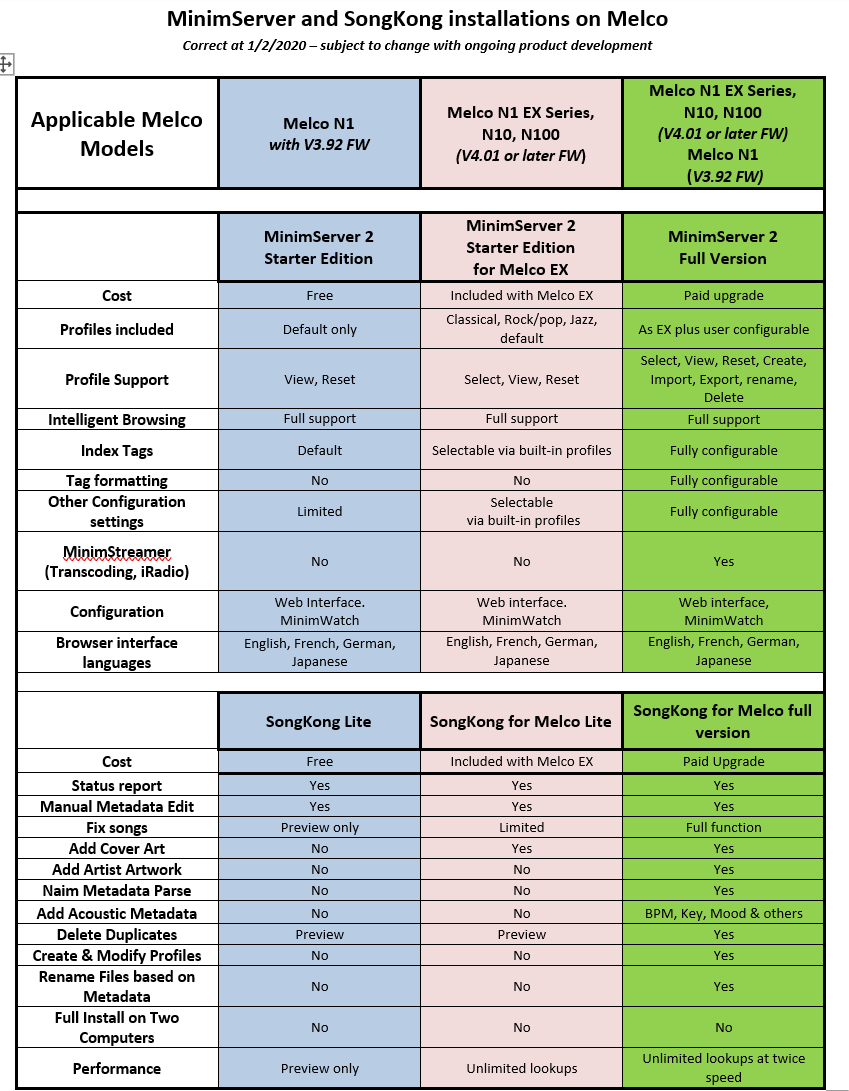
IN USE
So what’s different? Firstly it takes a lot longer to import music, via USB. I don’t often transfer music over the network, as it sends it via a much longer path, leading to potential degradation by the router, switches, etc but presumably, it would take a little longer this way as well. This is because Songkong is scanning each file and matching it up with the database. To be fair it’s very rare for it to get the wrong artwork or version of a given album, but you can edit this via the MinimServer portal by entering your unit’s IP address, followed by :4567 in a web browser using a computer or via phone or tablet. Previously you’d be firing up the PC and editing artwork manually using file explorer, which was a right pain!
Direct CD Import is slightly different too and you are given a few more options on the screen of your Melco to help you ensure you pick the right version of the CD you’re importing.
A major draw for some will be the ability to work with Roon natively. Previously you’d have to point Roon to the individual folder within your Melco unit; Post upgrade it finds it on the Network within Roon. As a minimum, you need the v4.04 update for this and v4.10 will make this more automated. I’m not a Roon user, although I trialed it and I enjoyed it for a while last summer. I am told having Roon running on the machine is fairly processor-heavy, so does potentially have a slight impact on sound quality, as it would with other equipment. (Being a heavy user of Roon, I can confirm that integration with the new EX upgrades to Melco is a breeze, and I personally didn’t feel there was a degradation in sound quality in my system – Ed.)
You also get Vtuner, which may or may not be of interest. I’ve had this available on my streaming DAC for well over three years and used it only once to check it worked, but I gather this is of great interest to many others.
A LOOK AROUND THE INTERFACE
So here’s what we can see if we do a search via composer. Personally, I really like the fact I can see a list of artists involved, which I otherwise wouldn’t have known. Sure, Roon will do this and so would reading through the notes of the physical media package, but it’s still useful for me.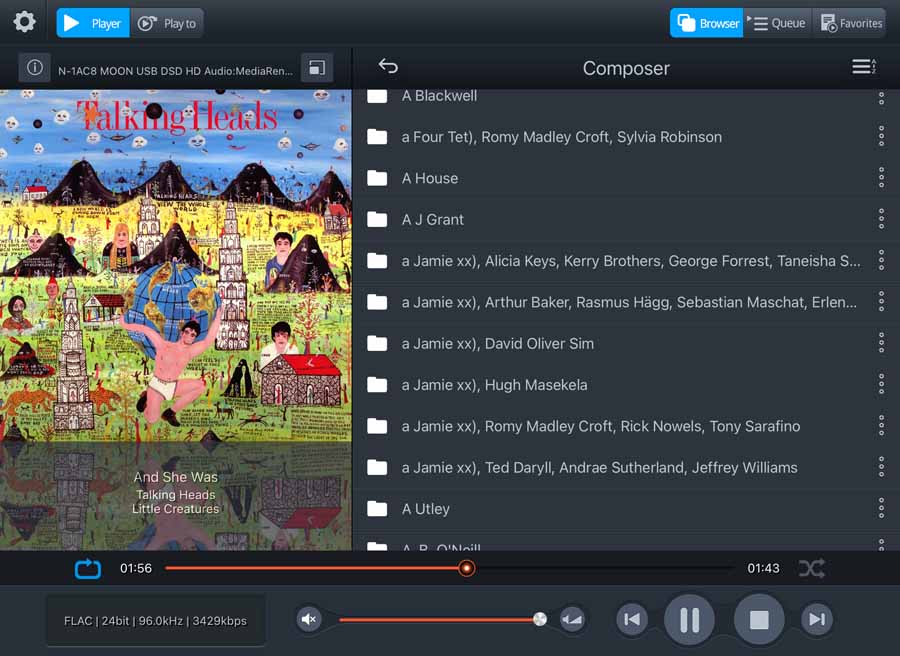
Here we’ve got a triple CD rip, which now gets listed as a single work, yet we still see it broken into three discs. Starting the first track will result in playback of the full album, all 3 discs without interruption. This could be very useful for Classical fans, who want to hear a complete work without being bothered by the limits of the CD storage format.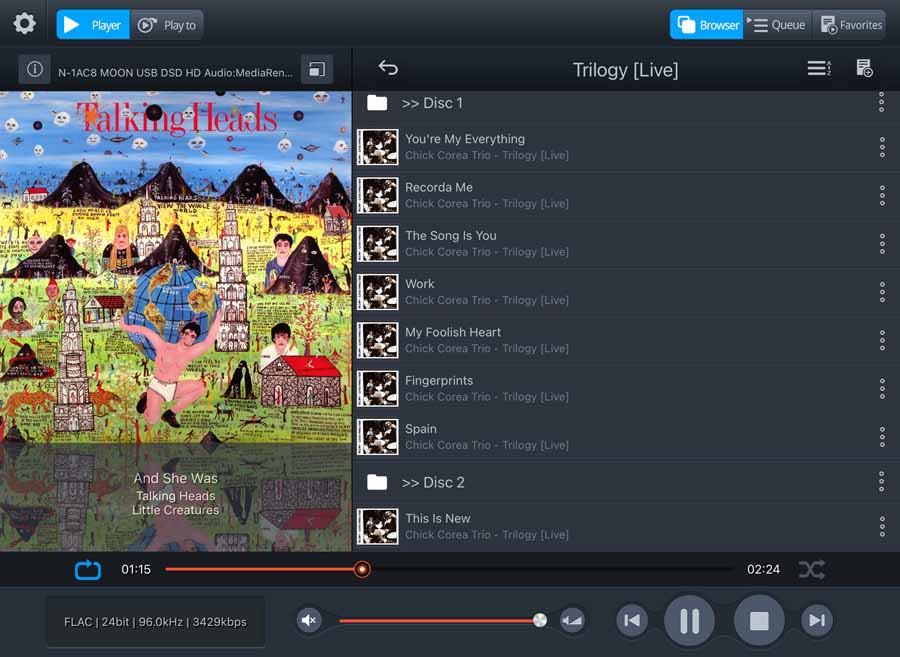
In the ‘watch folder’, we can monitor a particular folder or subfolder which will be useful for those who might otherwise forget about newly added music. In the example below, I’ve put a watch on files going to my Highresolusion.com download list. I might be away from home, reading an article about a particular artist, buy an album from the site, and then when I’m back home using the system I can see the album in my watchlist to remind me it’s there!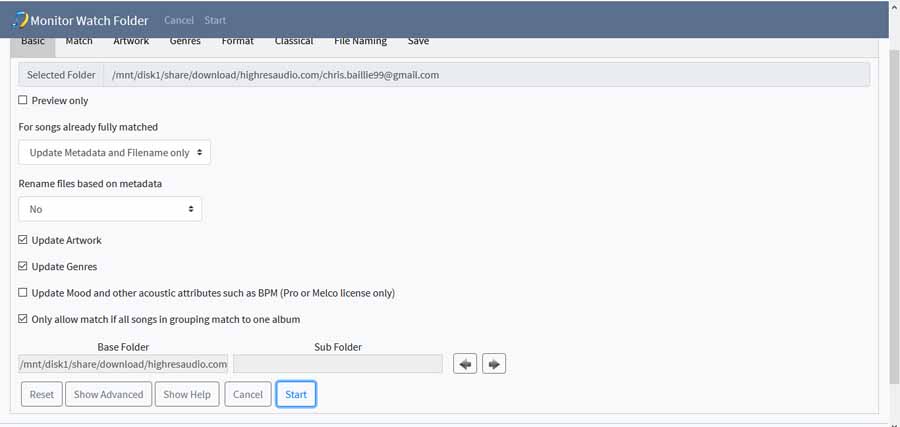
Here’s how users can edit artwork, metadata, etc by directly logging into MinimServer
SONGKONG FIXES
I love how you can choose the artwork to match a release for a particular country. Those migrating from Naim Servers, or having access to files originally ripped on a Naim Uniti (copyright applies), will find the ability to transfer meta from the Naim WAV file header to the main file’s meta a godsend.
V TUNER
With V Tuner users now have access to hundreds of radio channels. I’m afraid I only listen to 6Music, which is only available at 128kps, but it works and is stable.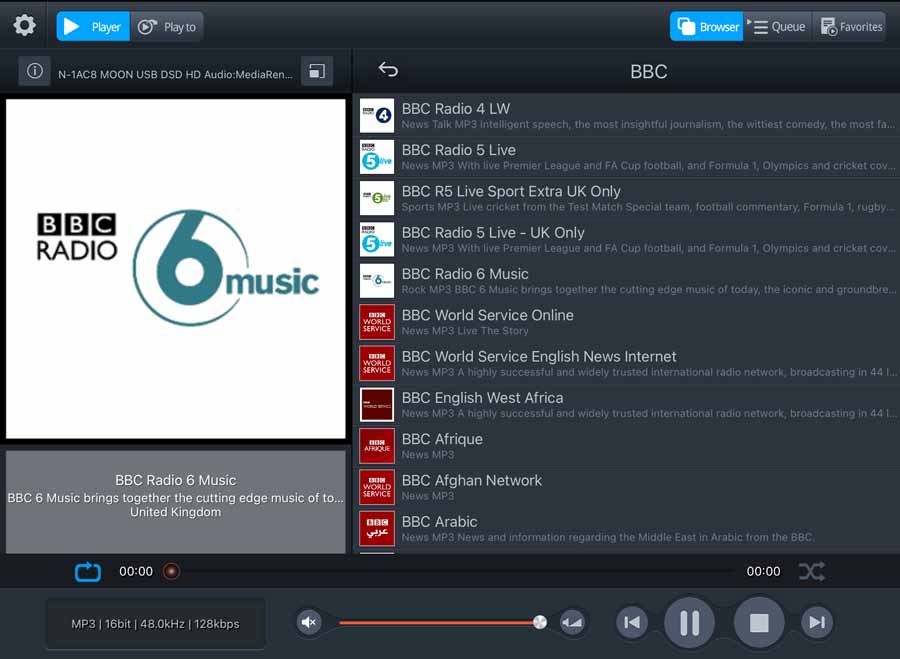
Do all Melco owners need to update?
Thankfully, older spec machines are still supported and indeed there’s a more limited version of MinimServer available. I’m told that users of the non-EX machines may well have already had their latest update, which for reference is v3.92 – the EX machines firmware starts with the prefix of ‘v4.’. So it’s purely an operational update, although there are slight sonic benefits to the EX models which is down to the way the drives are mapped and the way the processor is utilised. As stated previously, I am finding the sound slightly cleaner and more focused since the update, but it’s certainly not night and day. Clearly, having the update is going to help if you intend to sell your machine or part-exchange it with a model higher up the range. If you don’t feel you would benefit your existing machine will still work as before.
AT A GLANCE
Sound Quality: Certainly does no harm. I noticed a slight improvement, but I didn’t have things 100% optimised before the update
Value for money: Subjective, but it will help maintain the market value of your machine if you decide to sell it on. Prices vary depending on age of your machine and certain models are updated at no cost. Roon users may well consider the costs involved to be worth it for the Roon Ready feature alone.
Pros:
SongKong is fantastic and makes a breeze of importing from both CD and Imported files.
MinimServer 2 gives you many more options than before.
Easy editing of metadata from mobile devices.
VTuner for those interested and that the EX models are Roon Ready will be a big draw for many.
Cons:
For some owners of older models, they may consider £500 to be OTT for a software update.
Price:
Varies depending on where you live and model, but a maximum of £500 in UK. It is free if you have a newer machine. A Discount is available for some who bought an older machine within a certain time frame. £28 for MinimServer 2 plus £10 per year. SongKong £50 to cover use on Melco machine plus a computer, with an additional £10 per year if you want to continue to receive updates.
HIfi Pig’s review of the Melco NA1/2

Chris Baillie





























































